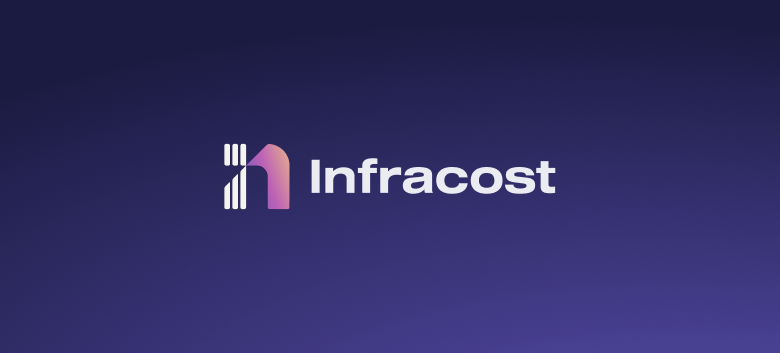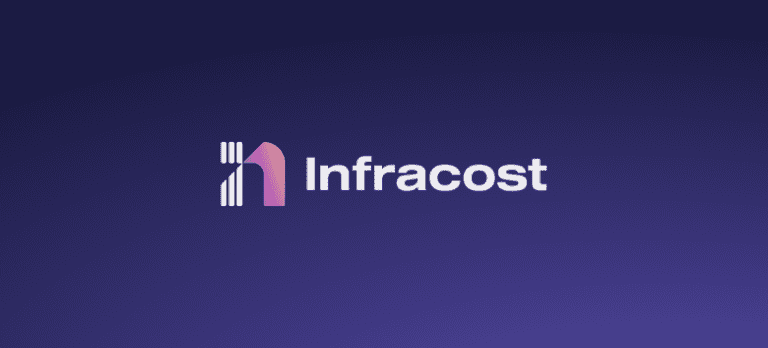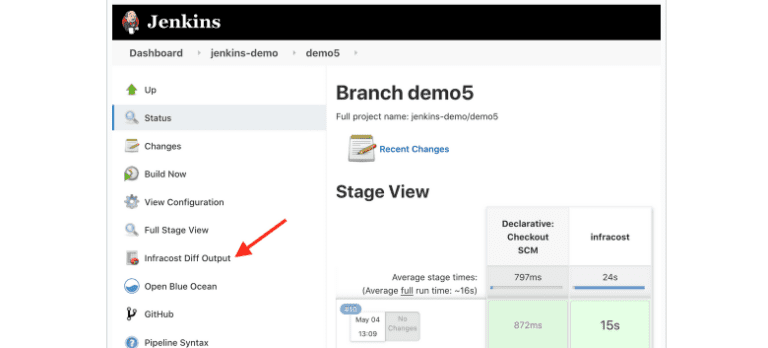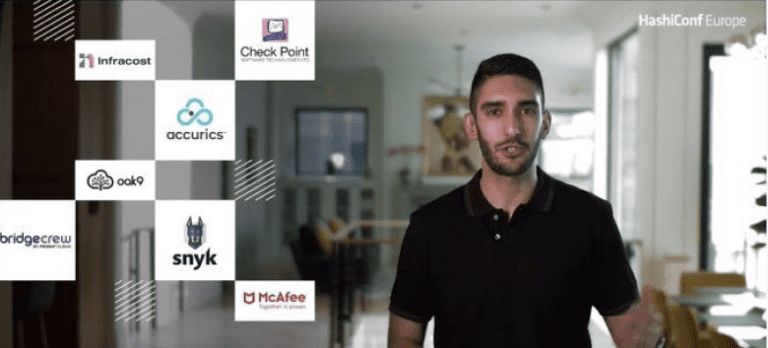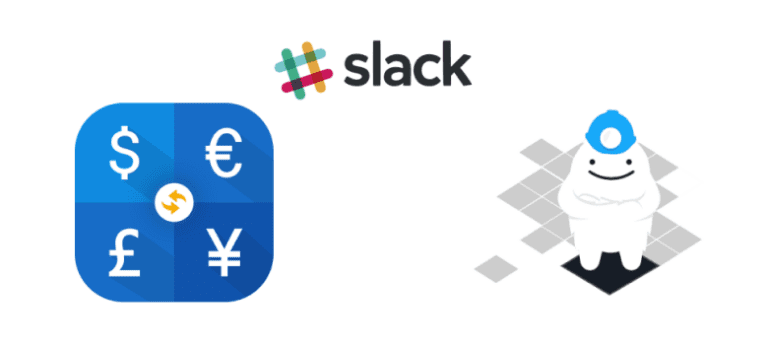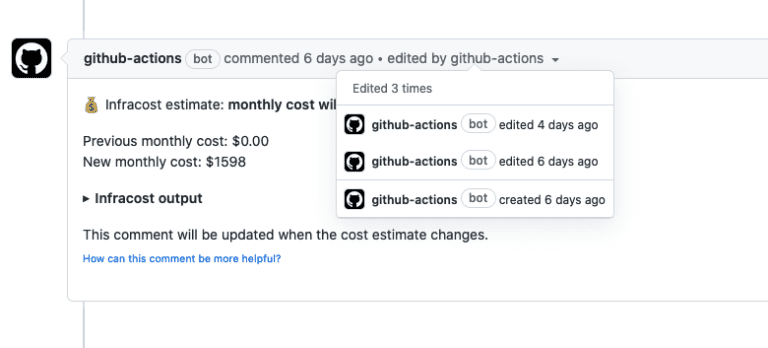New Supercharged CLI Parser & Preventing AWS Extended Support Costs for RDS/EKS
Happy spring equinox!
In the past few months, we’ve been heads-down, making major improvements to the Infracost CLI, Infracost Cloud, and our CI/CD integrations to support large enterprises with thousands of code repos and complex workflows.
Faster and Deeper Code Parser
Infracost is now used by over 3,000 companies 🚀 Large enterprises have repos with multiple environments (e.g., dev, stage, prod), stacks (e.g., core-api, data-stack), or a combination of the two (e.g., api-dev, api-prod). Infracost calls these projects and outputs their costs individually. This is crucial because when engineers modify a variable, such as an instance type, they can easily see the cost impact for each project. Furthermore, Infracost shows tagging policy failures and FinOps recommendations for each project to make it super-easy for them to fix issues.
Traditionally, users had to define these projects via config files, which was painful for thousands of repos. The new Infracost CLI has two major improvements to alleviate this pain: it uses a significantly faster graph-based parser and auto-detects all projects in your repos (this also works with Terragrunt repos).
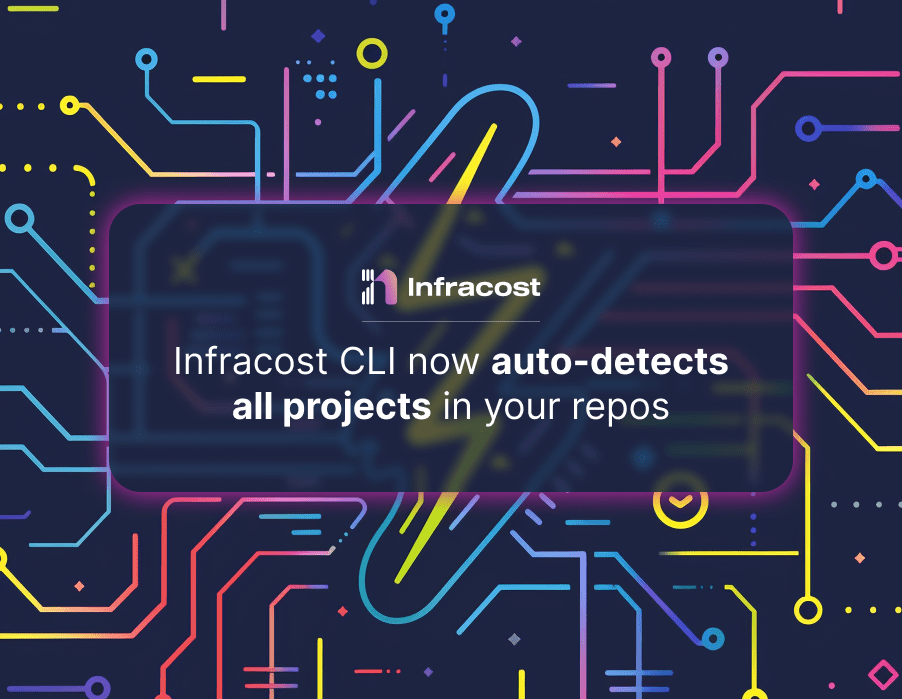
AWS Extended Support Costs for RDS and EKS
AWS recently started charging significant Extended Support costs for non-supported RDS and EKS versions. We’ve introduced two new FinOps policies in Infracost Cloud to help you prevent these additional costs by warning engineers to update their code before launching resources.
For RDS, as of March 1, AWS imposes hourly support fees on MySQL, PostgreSQL, and Aurora instances running non-supported versions. Brace yourself for a significant spike in costs… for example, a MySQL 5.7 db.t3.large instance could see a staggering 140% increase.
For EKS, effective April 1, running EKS clusters on outdated Kubernetes versions will cost you $0.60 per cluster hour. Imagine a 600% hike in management costs! Upgrading your cluster version is the key to avoiding this cost, preventing the management cost of a cluster increasing from $73 to $438 monthly.

Tagging Policy Filters
Tagging is a fundamental part of FinOps and enables tasks such as cost allocation and reporting. DevOps and Platform teams are usually responsible for implementing and enforcing a FinOps tagging policy in infrastructure-as-code. To achieve 100% tagging policy coverage across thousands of heterogeneous repos, these teams need to handle complex use cases such as:
- All resources must have a valid team tag value, but ECS Task Definitions and IAM resources are exempt.
- All EC2 instances must have an operating_system tag with the value of Linux or Windows.
- Third-party Terraform modules that do not support tagging inputs are exempt, so engineers do not need to fork those repos to add tags.
Tagging policies now support resource type include/exclude filters to handle the above use cases, which are often found in large enterprises.

CI/CD Integrations
Previously, only Infracost source control integrations (GitHub App or GitLab App) worked with Infracost Cloud. Due to network access policies, some enterprises in the financial, insurance, and healthcare sectors cannot use these managed integrations. We’ve updated our CI/CD integrations to work with Infracost Cloud, so such enterprises can also shift FinOps left! We’ve also added support for tagging policies and FinOps policies for Atlantis users who run Infracost with a Terraform plan JSON file.

Finally, a big thank you to everyone in the community who provided feedback. Infracost now has over 10K stars on GitHub ⭐

